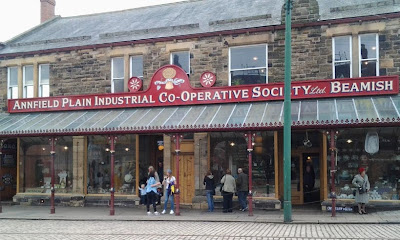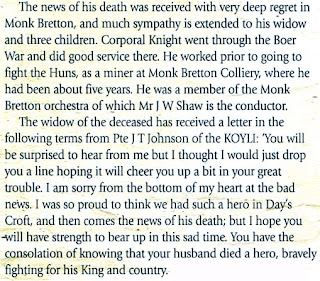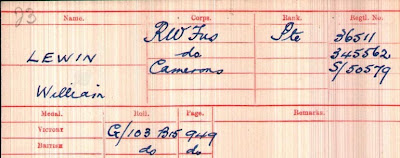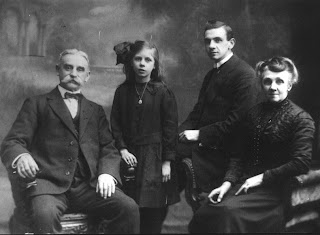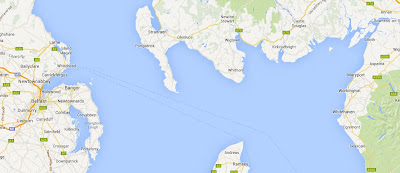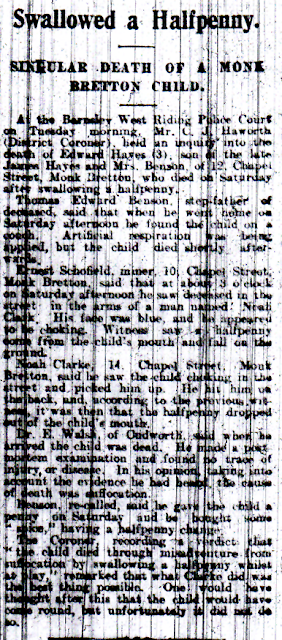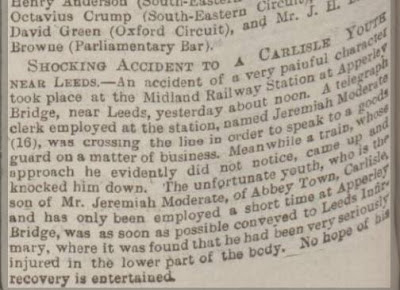I realised all was not yet even anywhere approaching right in Barnsley Archives yesterday morning when after only an hour and a half of transcribing a Non-Conformist Baptism register, a job chosen for its relative simplicity, my mind started to wander and I began to make silly mistakes.
My problems last week were not a 'flare up'; a lot of people who do understand something about Crohn's Disease often suggest this is the main problem I have to face. To be honest the Pentasa (slow release Mesalazine) seems to take care of most of my digestive problems as long as I'm not a complete idiot and eat or drink something unsuitable. This has led to various doctors suggesting my illness is controlled enough to work ... err, but what about the other effects ... the tiredness and the aches and funny (that's not ha! ha! - that's peculiar) pains.
The walk up from the bus station earlier had been a slow one ... having 15lb of laptop (and associated disability aids - angled stand, wrist rest) strapped to your back means you have both hands for holding onto stair rails and leaning on walls, but it also makes the sheer effort of walking that much harder. Just walking into the Archives after a week 'off' was hard in a different way ... would they ask where I'd been? Had they even noticed I'd not turned up after I'd tried so hard to establish a regular twice weekly visit? Nothing was said (I wasn't sure whether to be upset no-one had asked or thankful ditto) and realising I wasn't 100% I chose to transcribe a nice simple list rather than the publicans' wills or Council Minutes I had been dabbling with on previous visits.
I managed another hour, but only by interspersing the transcribing with a bit of Facebook browsing (the Archives now has a working wifi system, which is a godsend), some 'I wonder if that person I've just transcribed is a member of the OH's family' side tracking and a very nice moment when I helped a visitor find out who else was buried in his grandmother's grave in Barnsley Cemetery.
When I got home I went straight to bed and slept soundly until two nuisance calls within minutes of each other (the previous owner of our landline number appears to have been a woman of many social problems) quite thoroughly woke me about an hour later.
I still couldn't face 'working', that is doing anything on my computer, so I spent the rest of the day (when I wasn't washing dishes, feeding the OH and the cat and harvesting garden produce) watching history on the television. An episode of 'The White Queen' (the BBC's drama about the Wars of the Roses), an episode of Philippa Gregory's documentary 'The Real White Queen and her Rivals' and the first episode of Channel 4's new drama 'The Mill'.
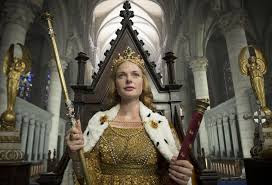 |
| The White Queen (BBC) |
I also enjoy most historical documentaries - recently Dan Snow's 'Locomotion: History of the Railways' and Robson Green's 'How the North was Built' have both been very good. 'The Real White Queen' suffers by comparison because there really isn't much to see on the screen as Philippa Gregory and the various other academics (seeing someone on screen whose book I have is another thrill of mine) relate the story of the Wars of the Roses. The castles are mostly ruins, there really aren't that many portraits of people from the fifteenth century and they show very few shots of actual historical documents. Watching another set of actresses portraying Elizabeth Woodville, Anne Neville and Margaret Beaufort when you have already got the faces of the actresses from the concurrent drama fixed in your head is just confusing. Couldn't they have just used bits of 'The White Queen' instead? PG emphasises the importance of the history of these women - which has up until recently been mostly ignored by the (male) writers of most history books. I do share this sentiment and would like to see a drama and/or a documentary about another favourite of mine, Katherine Swynford, John of Gaunt's mistress and later wife and great grandmother of Margaret Beaufort. Considering the drama is a ten parter giving us only two weeks for the real history does feel like we've been shortchanged ... couldn't they have covered some of the other women in more depth, Cecily Neville, Jacquetta Rivers, Margaret of Anjou. Oh, well, maybe there'll be some other programmes about them, after all PG hasn't stopped writing the Cousins' War books yet!
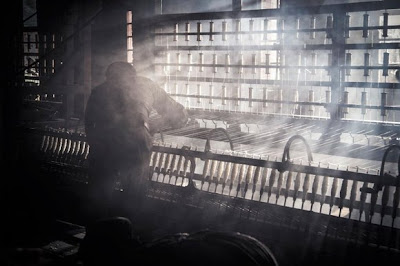 |
| The Mill on Channel 4 (picture from the Sunday Times) |
'The Mill' is of course set in an entirely different era and social setting to 'The White Queen' so comparing it on costume and settings really isn't fair. I would expect a drama set in an 1830's cotton mill to be dirty and squalid - showing it any other way would just be wrong. The press blurb and the Channel 4 website (one of those 'modern' websites that promises a lot and doesn't deliver) suggest the story is based on actual events at Quarry Bank Mill (a place I have never yet managed to visit, but would really like to), the Sunday Times article that I took the picture above from begins to suggest that some clever reconstructions of the working machinery were necessary for the filming, but as I haven't got a subscription for the page I can't read the rest of the article - very annoying. I have found a blog about Quarry Bank Mill, where the series was filmed, which does fill out some of the historical background to the series.
I enjoyed the first episode - I set my recorder to catch the rest - and do hope the series continues to focus on the working conditions at the mill, the social unrest of the time and the story of the child apprentices without putting in too much scandal and drama just to spice the story up. Ever since the opening shots of 'North and South' where Richard Armitage (mmmmm!) walks through his fluff filled mill I've been aware that these places were not just dirty and noisy but also full of almost invisible dangers, the dust and the exposed machinery. We've already had an accident to a child involving a machine and the new mechanic fits a safety guard to just one machine towards the end of the episode - and the girls are heard coughing and trying to shake the fluff from their clothes throughout the episode. Will we hear more about the effects of this? I suppose I'll just have to wait and see.
Here's a picture of Richard Armitage and the fluff ... just because I can!
 |
| Richard Armitage playing John Thornton in North and South (from Richard Armitage Online) |


